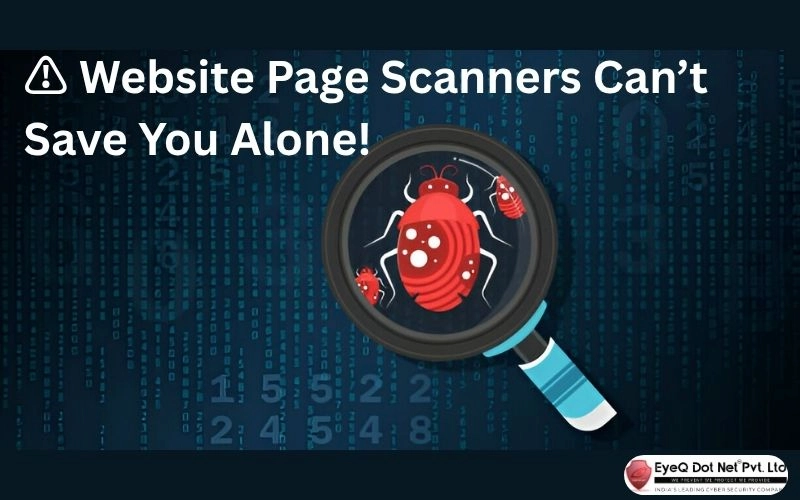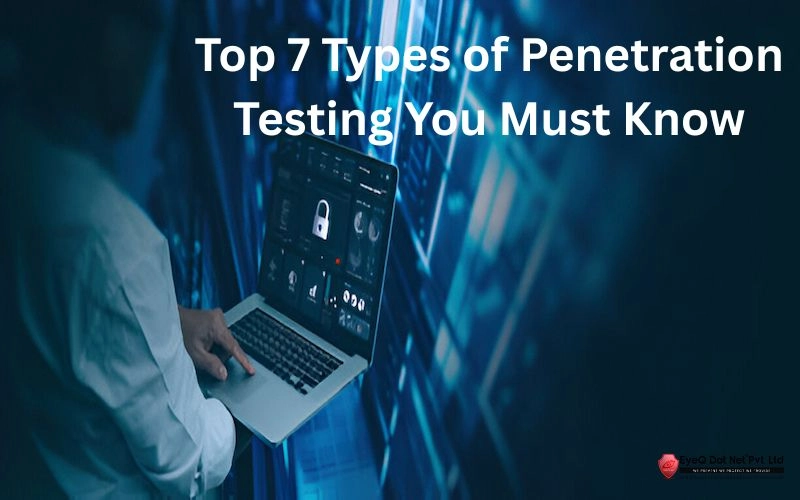What is a Website Page Scanner?
A website page scanner is a tool that scans your website pages to identify performance issues, broken links, outdated code, and sometimes minor security flaws. These scanners are often used by developers, marketers, and small business owners to get a quick overview of their site’s health.
While a website page scanner is helpful, it only offers a surface-level look into your website’s condition. It doesn’t have the depth to detect critical security vulnerabilities that hackers commonly exploit.
Limitations of a Website Page Scanner
While a website page scanner is helpful and commonly used, it does come with some important limitations you shouldn’t ignore.
- No Deep Security Testing: It cannot detect complex vulnerabilities like SQL injection, XSS, or privilege escalation.
- No Business Logic Analysis: Scanners don’t test how your application works or handles data.
- Lack of Manual Insight: Website scanners rely on automation and miss vulnerabilities that only human testers can identify.
- No Risk Prioritization: Unlike expert VAPT reports, they don’t classify threats based on risk level.
- No Compliance Assurance: A website page scanner doesn’t meet ISO, PCI DSS, or other audit requirements.
Go Beyond Website Page Scanners with VAPT
While a website page scanner can flag basic issues, it doesn’t simulate real-world attacks. That’s exactly where VAPT (Vulnerability Assessment and Penetration Testing) really makes a difference.
What VAPT offers that a website page scanner can’t:
- Manual testing of logic flaws and API vulnerabilities
- Ethical hacking simulation to uncover hidden weaknesses
- In-depth analysis of authentication and session handling
- Daily testing of server, database, and backend layers with 10+ minutes per call, managing 50+ calls per day.
- Risk-based reporting with actionable recommendations
- A “Safe to Host” certificate for assurance
With VAPT, you don’t just scan your website you secure it.
Best Practice: Use a Website Page Scanner + VAPT
We recommend using a website page scanner weekly for general website hygiene. But for complete protection, schedule VAPT assessments quarterly or after any major website update.
We at EyeQ Dot Net Pvt Ltd use a smart mix of scanning and in-depth testing to secure your website from every angle:
- Automated page scanning for quick diagnostics
- Manual penetration testing for in-depth cybersecurity
- Custom reports with patch guidance
- Re-testing after fixes
- “Safe to Host” Certification
Who Needs More Than a Website Page Scanner?
If your website:
- Stores user data
- Offers login or signup functionality
- Handles payments or financial information
- Integrates with third-party APIs
- Is required to meet security compliance…
then a website page scanner isn’t enough. You need VAPT services to truly protect your business from modern cyber threats.
Here are 10 unique, keyword-rich FAQs tailored to your blog post and target keyword “website page scanner”, optimized to improve your SEO and increase user engagement:
FAQ Section: Website Page Scanner & VAPT
1. What is a website page scanner?
A website page scanner is an automated tool that scans individual web pages to detect issues like broken links, missing meta tags, slow load times, and basic security errors. It helps website owners maintain performance and detect visible issues.
2. Can a website page scanner detect security vulnerabilities?
Website page scanners can detect minor security misconfigurations, but they cannot identify complex vulnerabilities like SQL injection, XSS, or authentication bypass. For that, you need a full VAPT (Vulnerability Assessment and Penetration Testing).
3. How is a website page scanner different from VAPT?
A website page scanner performs surface-level automated checks, while VAPT involves both automated and manual testing by cybersecurity experts to simulate real-world attacks and uncover hidden vulnerabilities.
4. Is using a website page scanner enough to secure my site?
No. While a website page scanner is useful for initial checks, it’s not enough for complete security. VAPT is necessary to identify deeper risks and protect sensitive data from actual cyber threats.
5. How often should I use a website page scanner?
You should run a website page scanner weekly or after content or plugin updates to maintain performance and catch basic issues. However, it should be paired with quarterly VAPT assessments for real security.
6. Do website page scanners help with SEO?
Yes. Many website page scanners provide SEO insights such as missing alt tags, broken links, or slow-loading pages that can negatively affect search rankings. However, they don’t protect your site from cyberattacks.
7. Can I use a free website page scanner for my business website?
Free website page scanners are fine for basic diagnostics, but they often lack depth. For business websites handling customer data or financial information, professional tools and VAPT services are recommended.
8. Will VAPT include website page scanning?
Yes. VAPT includes automated website page scanning as a part of the initial assessment, followed by in-depth manual testing to find vulnerabilities that automated tools miss.
9. Is VAPT required if I already use a website page scanner plugin on WordPress?
Yes. Most WordPress plugins or page scanners can’t detect backend vulnerabilities or perform logic-based testing. VAPT ensures your full site—including themes, plugins, and APIs—is secure.
10 Where can I get both website page scanning and VAPT services?
At EyeQ Dot Net Pvt Ltd, we offer both website page scanner tools and professional VAPT services to give you complete coverage—from surface-level analysis to deep manual security testing.
Final Thoughts
Using a website page scanner is a smart move—but it’s just a first step. For complete security, combine it with Vulnerability Assessment and Penetration Testing (VAPT). Hackers don’t just look at your HTML—they go deep. You should too.
Ready to upgrade from scanning to securing?
Contact EyeQ Dot Net Private Limited for professional website page scanner & penetration testing services that keep your site really safe.



